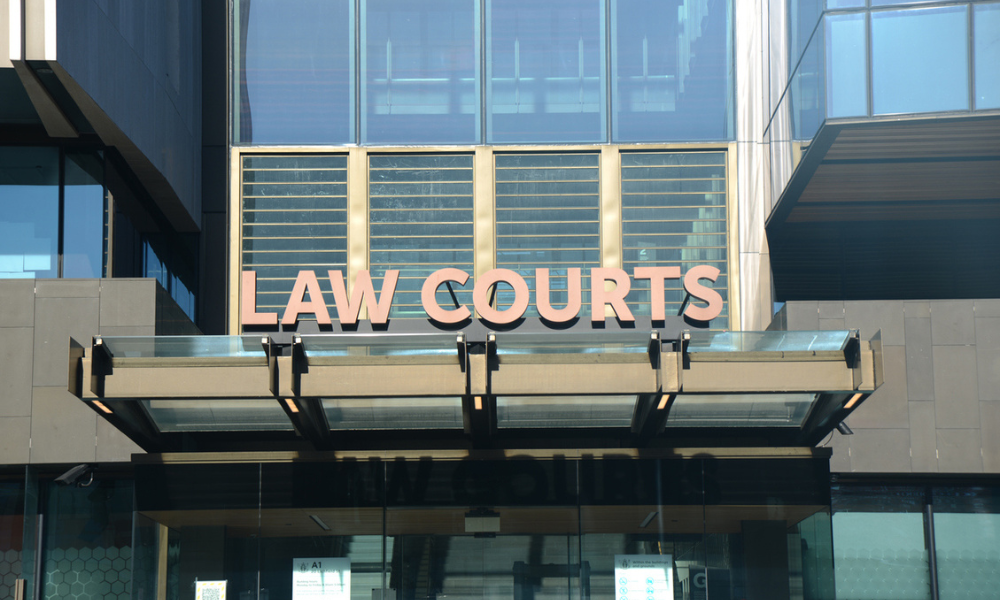
There was an order that he be struck off the roll of barristers and solicitors

The High Court has ruled that it would not be in the interest of justice to grant a stay of an order striking off a lawyer from the roll of barristers and solicitors due to professional misconduct and negligence.
The New Zealand Lawyers and Conveyancers Disciplinary Tribunal found Alwyn O'Connor guilty on one charge of misconduct and one charge of negligence, such as to reflect on the lawyer's fitness to practice. The Tribunal ordered that he be struck off the roll of barristers and solicitors as per the Lawyers and Conveyancers Act 2006.
O'Connor has appealed the Tribunal's decision and applied for a stay of the order pending the appeal hearing. The High Court noted that O'Connor's primary ground to support his interim stay application is the allegation that "the nature of the matters which he seeks to continue to act has little or no risk to the public if a stay is granted." O'Connor asserted that these matters are court or Tribunal matters, and the findings against him were not concerning his technical ability as a lawyer but ethical breaches.
O'Connor's supervisor claimed that failing to grant a stay pending appeal would have a "serious detrimental effect" on the clients, especially O'Connor's pro bono clients.
O'Connor listed 27 matters on which he would continue to act for clients for the interim stay sought. The court noted that some of these matters are pro bono, while others have no description of how O'Connor will be renumerated, and others are matters for which he would charge a fee. Furthermore, O'Connor claimed there was a lot that the Tribunal did not know about him, including his community service. He also said he did not owe any clients any money, nor would he ever borrow any money from a client.
The High Court acknowledged that the ultimate issue for a stay application is to determine where the interests of justice lie. The court noted that "the likely impact of the cancellation on the appellant's pending appeal and protection of the public are relevant considerations.
The court further said that the consideration of an application for a stay must also be undertaken considering the purposes of the Lawyers and Conveyancers Act, which has a consumer-protected focus.
The court considered that the matters before the Tribunal and O'Connor's defences and material supplied in mitigation were examined in detail by the Tribunal. The court found that the Tribunal's decisions contained careful reasons. The court said that it would exercise power to grant interim relief from suspension sparingly and only in circumstances where it can be confident that any order it might make would not place members of the public at risk.
The High Court considered the public interest factor. It said there would be some inconvenience and difficulty in obtaining lawyers to take over O'Connor's matters, affecting the interests of the clients involved. The court noted that the nature of the allegations, which the Tribunal has accepted, indicated that O'Connor took advantage of a client's vulnerability and used the client's money for his purposes, suggesting that he did not appreciate his fiduciary obligations to his client.
The court said that the list of clients produced by O'Connor as being those for whom he would continue to act included several clients who are reliant on pro bono assistance and vulnerable due to their circumstances and reliance on such assistance. Such clients are vulnerable to the types of behaviour that led to the charges against O'Connor.
The court found that O'Connor took advantage of what he said was a friendship to gain control of his client's bank account and to use the money in that account. Furthermore, the court underscored that O'Connor's comment that he did not act for friends or borrow money from clients raises concerns that he still does not realise the nature of his obligations to his clients, friends, or otherwise.
The court also said that for other matters which may inconvenience O'Connor's clients if a stay was not granted, alternative counsel could be briefed, and an appropriate person be employed in place of O'Connor.
The court ultimately found that, in this case, the consumer protection objectives of the legislation and the nature of the allegations considerably outweigh the factors in favour of a stay. Accordingly, the court was not persuaded that the case's circumstances justify granting the order's stay striking off O'Connor from the role of barristers and solicitors. The court said, "I cannot be confident that Mr O'Connor will pose no threat to his clients for whom he seeks to continue to act."